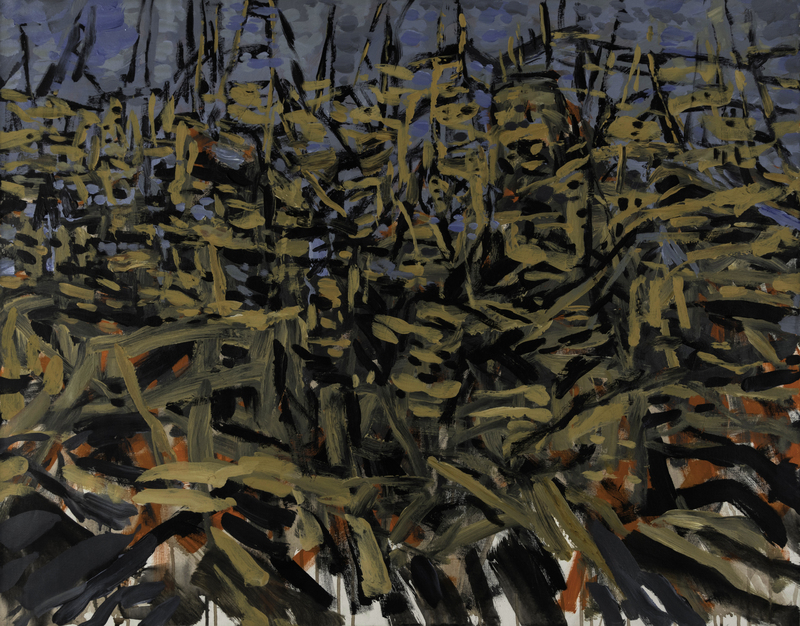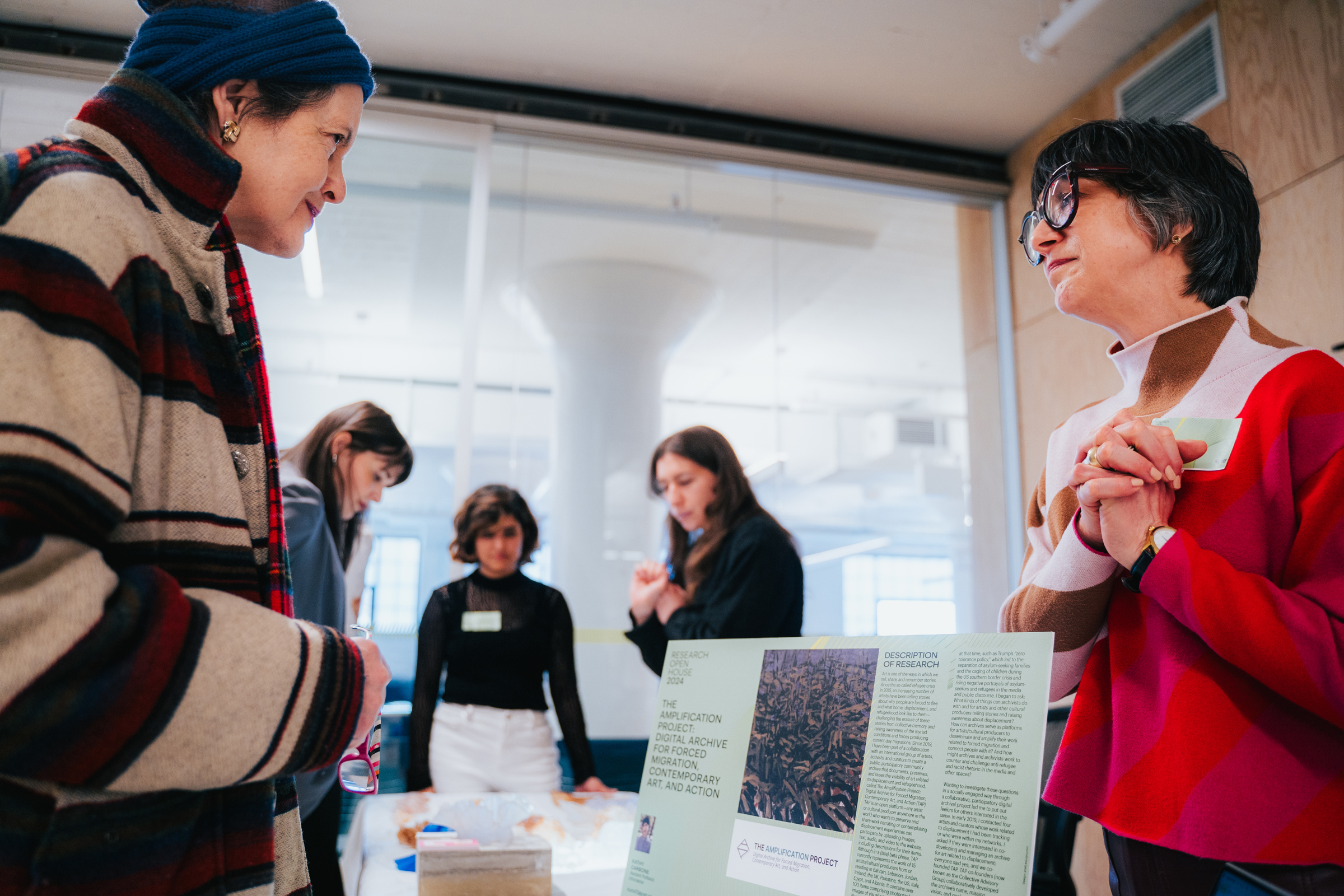The Amplification Project: Digital Archive for Forced Migration, Contemporary Art, and Action

Kathy Carbone, TAP co-founder, archivist, director, and Assistant Professor in the School of Information
Vukašin Nedeljković, TAP co-founder, artist, activist, and independent scholar
Habibah (Biba) Sheikh, TAP co-founder, author, curator, performer, producer, and director
Nimisha Malreddy, TAP graduate research assistant, School of Information
Navya Thakkar, TAP graduate volunteer, School of Information
School of Information

https://theamplificationproject.org/
kcarb475@pratt.edu
theamplificationproject@gmail.com
Art is one of the ways in which we tell, share, and remember stories. Since the so-called refugee crisis in 2015, an increasing number of artists have been telling stories about why people are forced to flee and what home, displacement, and refugeehood look like to them—challenging the erasure of these stories from collective memory and raising awareness of the myriad conditions and forces producing current-day migrations. The Amplification Project: Digital Archive for Forced Migration, Contemporary Art, and Action (TAP) is a collaboration between an international group of artists, activists, curators, and an archivist to create a participatory community archive that documents, preserves, and raises the visibility of art related to displacement. Any artist or cultural producer anywhere in the world who wants to preserve and share work narrating or contemplating displacement experiences can participate by uploading images, text, audio, and video to the website, including descriptions for their items. Although in a beta phase, TAP currently represents the work of 21 artists/cultural producers from or residing in Bahrain, Lebanon, Jordan, Ireland, the UK, Palestine, the US, Italy, Egypt, and Albania. It contains nearly 110 items comprising photographs, images of visual artwork, photo- and illustrated narratives, texts, film, and video.
Overarching Goals
TAP aims to:
- be a robust and dynamic platform/archive for artists to preserve and promote their work, especially artists who may be excluded from or do not want to participate in mainstream art circuits
- address the lack of refugee stories, representation, and agency in archives
- raise awareness about experiences of displacement from a global perspective
- reveal aspects of refugeehood invisible or absent from dominant narratives
TAP at Pratt Goals
At Pratt, I seek to create the “TAP Lab at Pratt,” a community archives lab that would provide students with experiential learning experiences in which they would gain:
- practical digital archival skills
- data visualization skills (in collaboration with SAVI faculty)
- community archives best practices and cultural competency through participation in collaborative, community-engaged, liberatory memory work with the international TAP community and Pratt students, faculty, and alums
